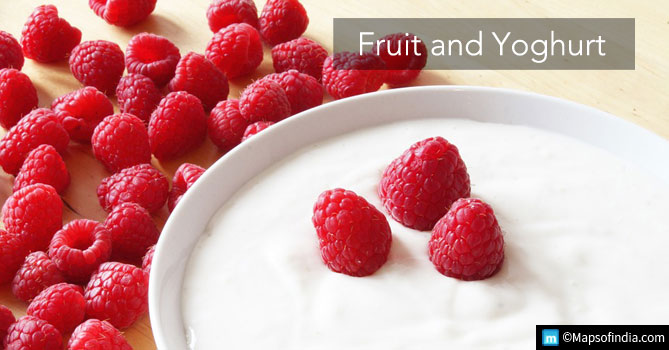Raspberries are a berry with rich colour and a sweet juicy taste. It has been consumed by humans for a long time and is grown widely. In today’s times, its production is emphasised in Eastern Europe and Russia, with Russia being the prominent producer. Different species of raspberries could produce red, yellow, purple, or black fruit. Of these, red raspberries are complex and most commonly cultivated. Only a tiny part of raspberries are eaten fresh. Most raspberries are frozen or processed into jams and other products.
In the early 1900s, black raspberry juice was pulled out, concentrated, and served as an edible dye for consumable items, such as meat. Raspberries were also dehydrated for long-distance purposes. These fruits are either harvested manually and consumed fresh or machine-harvested and processed, and nearly 27,000 tonnes are processed yearly. The top products of processing are block frozen, IQF, purée frozen (8–15 ° Brix), juice (about 9 ° Brix), concentrate, canned, aseptic packs, and preserves. These products are then packaged and dispatched directly to the consumer or reprocessed into jam, jelly, dessert topping, ice cream, pie filling, yogurt, and other desserts. Raspberry juice is generally a mixture of pear, apple or grape juice because the flavour is too intense for direct consumption. The demand for fruit wines gets high, and they make one of the better wines. Some wineries include raspberry juice to grape wine to acquire a less dear raspberry-flavoured wine. Raspberry beer is also produced at breweries and meaderies. The broad reach of raspberries continues to flourish as many raspberry-containing products are set on supermarket shelves.
Raspberries are sources of essential vitamins and minerals and ‘nonessential’ compounds that may improve health. Apart from using this as food, various parts of the raspberry plant have also been used for medicinal-related work.
Health Benefits of Raspberries
- Raspberry contains high nutrients: One cup of raspberries offers more than 50% of the minimum fresh target for vitamin C, strengthening immunity and skin health and assisting produce collagen. Raspberries also comprise manganese and vitamin K, which both play a significant role in bone health. and they supply minuscule amounts of vitamin B, E vitamins, copper, magnesium, iron and potassium
- Rich in anti-aging oxidants: Raspberries are antioxidant powerhouses. It lowers inflammation, a known cause of premature aging. They help the body remove toxic elements known as free radicals. The body results in some of these substances during metabolic processes, but others produce from external factors, namely unhealthful foods and pollution. Unhealthful foods consist of processed foods and those high in fat and sugar. The health-protective compounds have been linked to lower rates of cancer, heart disease, diabetes and obesity. The natural protective substances in raspberries are also linked to better DNA repair and blocking enzymes that lead to arthritis pain. Raspberries also include plant chemicals known as flavonoids, which have antioxidant outcomes.
- Cancer prevention: The National Cancer Institute observed that antioxidants from dietary sources might help secure the body from esophageal, lung, gastric, and other kinds of cancer.
- Low in sugar quantity: Raspberries are also one of the fruits that do not contain high, at just 5 grams per cup fresh, compared to 20 grams in one medium apple. It makes them a more practical option for anyone with a sweet tooth who wants to reduce their overall sugar intake consumption.
The risk associated with Raspberry
- Raspberry ketones: Some people consume supplements called raspberry ketones, which comprise chemical extracts from raspberries and other plants. Manufacturers state that these supplements can assist people in losing weight or preventing hair loss. Although, there is no adequate scientific evidence to reveal that raspberry ketones are safe or effective for these purposes.
Per 100g of Raspberry has 53 calories.
- Protein – 1.2 gram
- Fat – 0.7 gram
- Saturated fat – 0 g
- Polyunsaturated fat – 0.4 g
- Monounsaturated fat – 0.1 g
- Carbohydrate – 12 gram
- Dietary fiber – 7 gram
- Sugar – 4.4 gram
Sources include: USDA





